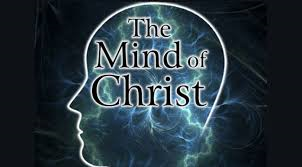Losing our Mind
In the 90’s there was a commercial that declared “a mind is a terrible thing to waste.” Its intent was to encourage the pursuit of higher education.
Unfortunately, a politician, hoping to win “kudos” and votes with potential constituents misquoted this saying resulting in the statement, “a mind is a terrible thing to lose.” That politician was not re-elected.
Mind management
In his letter to the church at Philippi, the Apostle Paul gives advice as to the best use of one’s mind. “Let this mind be in you, which was also in Christ Jesus” (Phil. 2:5). In other words, we are to set aside our way of thinking and replace it with the same type of thinking as Jesus. And what is the results of doing this? Victorious living.
Victorious according to Webster is defined as having won a victory or characterized by victory. I’m not suggesting that our life will be perfect nor problem free. Our victory comes in the knowledge that Jesus has already overcome every situation we now face in our life (Heb. 4:15; 1 John 5:5). In Christ, we have everything we need to overcome the challenges of 21st century living (2 Pet. 1:3-4, RSV).
His divine power has granted to us all things that pertain to life and godliness, through the knowledge of him who called us to his own glory and excellence, by which he has granted to us his precious and very great promises, that through these you may escape from the corruption that is in the world because of passion and become partakers of the divine nature.
How do we obtain the mind of Christ?
To have a mind of Christ we must…
Be willing to exchange our position and our plans, for the purpose God has designed for our life. Christ willingly joined God in His plan of salvation for mankind (Eph. 1: 4-6).
Trust in God and believe that all things work together for good to those called according to His purpose (Rom. 8:28).
Humble ourselves like Christ. Our intents and actions should seek “no personal reputation” nor gain (Phil. 2:6-8). Christ voluntarily set aside His privileges (“being in the form of God”) and accepted a lower status (“took on the form of a bondservant and made in the likeness of man”). Why? For us. That we might be released from the bonds of sin and have eternal life.
Our victory
Finally, to have the mind of Christ, we must be obedient. Obedience is the highest form of love. Because of our love for God, we must be willing to sacrifice our thoughts and actions to follow the instructions He has set before us (1 Sam. 15:22). Christ’s obedience was love of the highest caliber. Jesus was obedient even if it meant death by the worst possible punishment, death on the cross (Phil. 2:8).
Paul shares with the Philippians God’s reward for Jesus Christ’s “mind” (Phil. 2:9-10):
Therefore, God has highly exalted him and bestowed on him the name which is above every name, that at the name of Jesus every knee should bow, in heaven and on earth and under the earth, and every tongue confess that Jesus Christ is Lord, to the glory of God the Father.
Possessing the mind of Christ will empower us to “pull down strongholds and cast down obstacles that hold themselves up above the knowledge of God. We can do this by bring into captivity every thought to the obedience of Christ.” (2 Cor. 10:4-5)
“A mind may be a terrible thing to lose” unless you replace it with the mind of Christ. There is an old axiom that states, “You can’t lose what you never had.” Read the Gospel account of the Madman of Gadarenes (Mark 5:1-19) and see how losing your mind can change your life.










